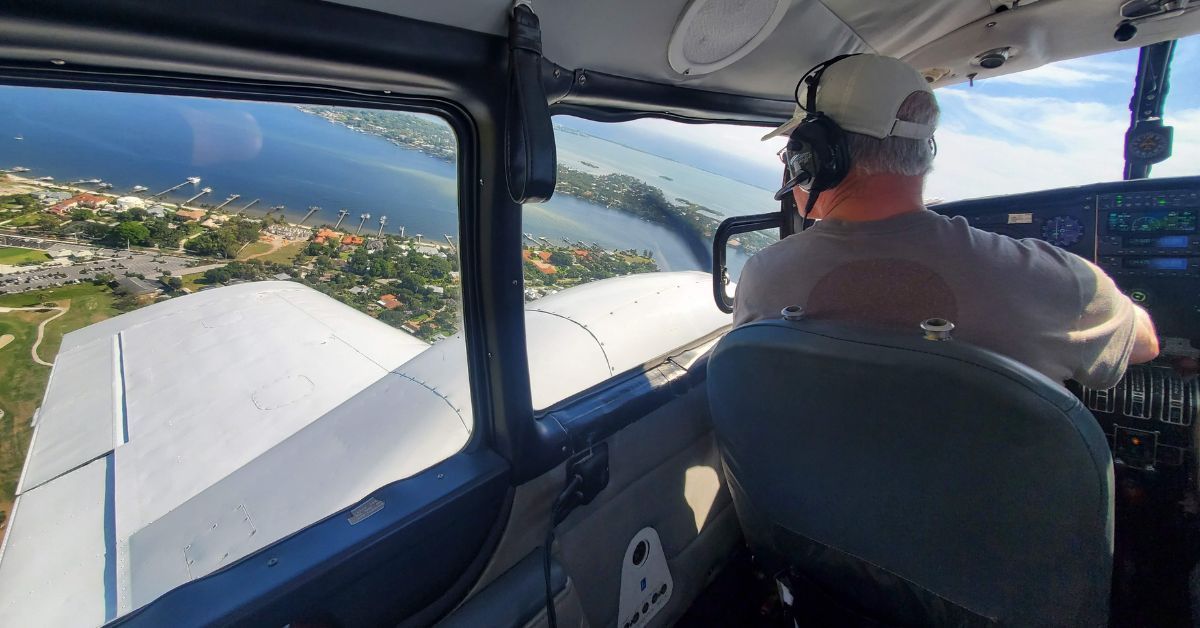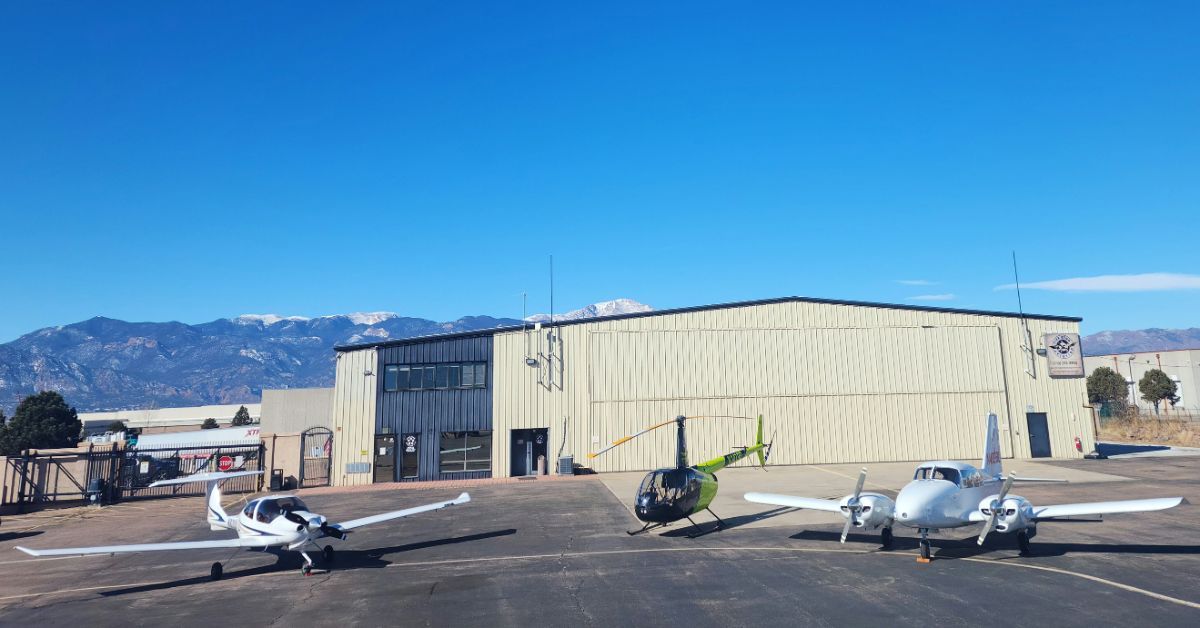Top 5 Reasons Veterans Make Great Airline Pilots
Transitioning from military service to a civilian career can be a daunting prospect for many veterans. However, one avenue that holds remarkable promise is the aviation industry.
Veterans possess a unique set of skills and experiences that make them particularly well-suited for the demanding and rewarding role of an airline pilot.
They bring a wealth of knowledge, discipline, and resilience cultivated through years of service that can be highly beneficial in the aviation industry. Take a deep dive into the top reasons veterans make great airline pilots to discover exciting aviation opportunities right now.
A Convenient Road to Certification
One key reason is the convenient road to certification for pilots.
For veterans, the transition from military service to a civilian pilot role involves several key steps. The first step is to understand the certification requirements mandated by the Federal Aviation Administration (FAA).
If you lack the proper certification for the type of piloting you want to do, whether for personal flights or commercial flights, then you must obtain it first.
Veterans must earn various pilot certificates, starting with a private pilot license (PPL) and progressing to more advanced certifications such as the commercial pilot license (CPL).
Training programs specifically designed for veterans can play a significant role in easing this transition. Many flight schools offer tailored programs that recognize and build upon the aviation experience gained during military service.
These programs often include flight training, ground school, and preparation for FAA exams. Additionally, veterans can use their GI Bill benefits to cover the costs of flight training, making it a financially viable option.
In some cases, veterans may already hold military pilot certifications that can convert to civilian equivalents with minimal additional training. Understanding the nuances of these conversions and working closely with flight schools and the FAA can expedite the transition process, allowing veterans to leverage their existing skills and experience.

Utilizing Various Transferable Skills
One of the primary reasons veterans excel as airline pilots is the wealth of transferable skills they bring from their military service. People acquire these skills through rigorous training and real-world experience, making them directly applicable to the demands of piloting.
Veterans are accustomed to operating advanced machinery and systems, ensuring they are comfortable with the complexities of modern aircraft.
Leadership and teamwork are fundamental aspects of military service, and these qualities translate seamlessly to the cockpit environment. Veterans have the training necessary to make quick, informed decisions under pressure, a critical skill for pilots who must react swiftly to changing conditions. Their ability to remain calm and composed during high-stress situations enhances flight safety and passenger confidence.
Attention to detail is another hallmark of military training.
Veterans have the skills necessary to meticulously follow procedures, conduct thorough pre-flight checks, and adhere to safety protocols. This precision ensures that flights operate smoothly and safely, minimizing the risk of errors or incidents.
The combination of technical expertise, leadership, and meticulousness makes veterans exceptionally well-prepared for the responsibilities of an airline pilot.
Having the Mental and Physical Preparedness
The mental and physical preparedness instilled in veterans through their military training is a significant advantage in the aviation industry.
Having this combination of skills is among the critical reasons veterans make great airline pilots.
Veterans undergo rigorous physical conditioning, ensuring they are in peak physical health—a requirement for pilots who must meet strict medical standards. The physical demands of flying, including long hours in the cockpit and managing potential medical emergencies, are well within the capabilities of veterans.
Mentally, many veterans know how to handle high-stress environments and make critical decisions under pressure.
The disciplined mindset developed through military service allows veterans to remain focused and composed in challenging situations. This resilience is invaluable in the aviation industry, where pilots must manage complex systems, adverse weather conditions, and unexpected events with confidence and poise.
Furthermore, military members undergo training that enables them to adapt to dynamic environments and rapidly changing scenarios. This adaptability is crucial in aviation, where each flight may present unique challenges.
Veterans’ ability to assess situations, develop strategies, and execute plans effectively ensures that they can handle the demands of piloting with ease.
Ready To Embrace New Challenges
While the transition to a civilian pilot career offers numerous opportunities, veterans may encounter certain challenges along the way. One common hurdle is the need to adapt to civilian aviation regulations and procedures, which can differ from military protocols.
Veterans must familiarize themselves with FAA requirements and standards to ensure compliance.
You may think your experience in the service is all you need, but becoming a commercial pilot does still require a readiness to learn and adapt to new things. A desire to embracing new challenges ensures you can tackle the path to certification and getting a piloting job with confidence.
Financial considerations are also a factor, as flight training and certification costs can be substantial.
However, veterans can leverage their GI Bill benefits, scholarships, and financial aid programs specifically designed for transitioning service members. Evaluating and applying for these resources can significantly alleviate the financial burden.

Many Opportunities To Explore
One of the best reasons that veterans fit perfectly in the piloting industry is that this is an industry that presents a lot of different options to pursue. Aviation is a field fit for someone who is looking for their niche and a way to evolve their skills.
This is best highlighted in the various certifications available. For example, at Arapahoe Flight Club, our rotorcraft transition program is available for those looking to move from a commercial helicopter pilot role to a single engine fixed wing endorsement.
Networking and building connections within the aviation industry is another important aspect.
Veterans can join aviation associations, attend industry events, and connect with fellow veterans who have successfully made the transition. Building a strong professional network can provide valuable insights, mentorship, and job opportunities.
From Service to the Sky
Veterans possess a unique combination of skills, discipline, and resilience that make them exceptional candidates for airline pilot roles. Their military training equips them with transferable skills, mental and physical preparedness, and the ability to thrive in high-stress environments.
While challenges may arise, veterans can overcome them with the right resources, support, and determination.
By leveraging available programs, financial aid, and networking opportunities, veterans can successfully transition into fulfilling careers as airline pilots. The aviation industry greatly benefits from the valuable contributions of veterans, and we encourage all aspiring pilots to explore this rewarding career path.
If you’re a veteran looking to take flight in a civilian aviation career, now is the perfect time to start your journey. With dedication and the right support, the skies are yours to conquer.
